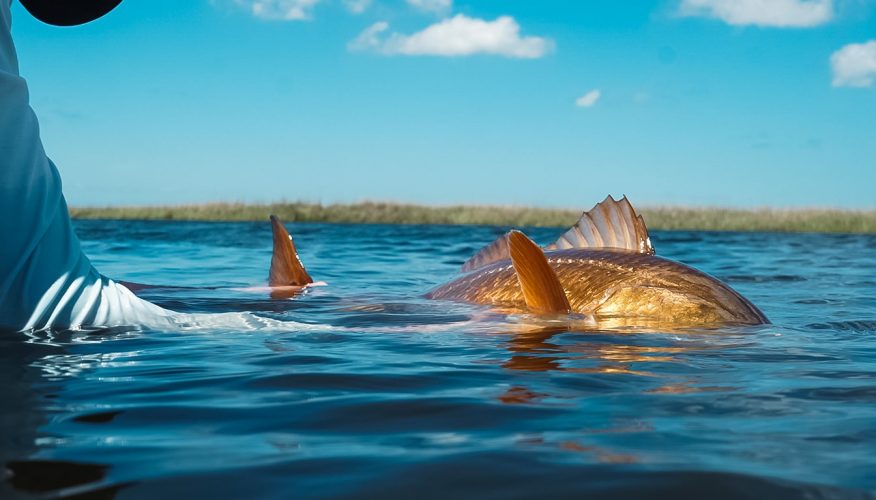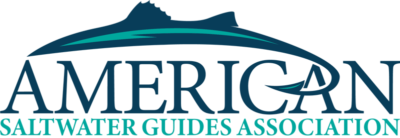Louisiana Science Symposium
FALL 2024
Fisheries Science Symposium
NEW ORLEANS, LOUISIANA
ASGA FISHERIES SCIENCE SYMPOSIUM
In September 2024, ASGA hosted our third Fisheries Science Symposium with the goal of further unifying the angling community, fostering productive discussion and inspiring stewardship across sectors.
ASGA Science Symposiums foster a collaborative learning environment for industry leaders, including guides, brands, small business owners, media, scientists and state representatives. The Fall 2024 event was a first of it’s kind for the Louisiana angling community. You can access a full library of presentation coverage on the ASGA youtube by scrolling below:

Fall '24 Presentation Library:
Jack Crevalle: A Proactive Approach for Underappreciated Fish
Dr. Marcus Drymon, a fisheries ecologist at Mississippi State University, highlights his research on an underappreciated fish species, the Jack Crevalle. Supported by organizations like the Lower Keys Guide Association and Bajio Sunglasses, this project focuses on the biology and management of an amazing species. Initially starting as a side project, Dr. Drymon’s interest in the Jack Crevalle grew after realizing its ecological and recreational importance. His research has centered around understanding the fish’s age structure, diet, and movement patterns, often using tagging and telemetry methods. The study reveals that the Jack Crevalle plays a crucial role in coastal ecosystems, but their population in some areas, like the Florida Keys, is declining due to factors like overfishing, prey loss, and habitat changes. Dr. Drymon emphasizes the need for proactive conservation efforts for Jack Crevalle, highlighting their importance to both recreational fishing and ecosystem health. He advocates for more research on their movements, suggesting that healthy populations in some areas, like Mobile Bay, might help replenish declining stocks elsewhere. Additionally, he has worked to promote catch-and-release practices to reduce unnecessary fish kills during fishing tournaments. He also encourages greater cooperation among scientists, anglers, and policymakers to protect this species and ensure its sustainability for future generations.
Battle to Conserve Louisiana Redfish: Latest Updates & LA Creel
This is a two-part video that features presentations from two core members of The Louisiana Department of Wildlife and Fisheries. The first half of the presentation features LDWF’s Jason Adrience, the Finfish Program Manager and Chief Scientist, and focuses on the status and management of redfish. He begins by discussing the biology of redfish, emphasizing their long lifespan (up to 39 years), maturity stages, and spawning habits. He highlights changes in redfish regulations over the years, beginning with the first limits set in 1984 and leading to more recent restrictions, such as the slot limit and reduction in the number of fish allowed to be caught. Adrience explains that while the redfish population is not yet overfished, overfishing has been occurring, particularly in the last decade. The management goal is to improve escapement rates, allowing 30% of sub-adults to mature and contribute to the spawning population. The second half of the presentation shifts to the importance of Louisiana’s LA Creel program, which collects fishery data through dockside interviews and surveys. Chris Schieble, the Deputy Assistant Secretary of the LDWF, describes how LA Creel helps track both inshore and offshore species, including redfish and spotted sea trout. They discuss challenges like “survey fatigue” among anglers, which has led to a decline in participation, particularly among charter captains. Accurate data collection is emphasized as crucial for making informed fishery management decisions, and they encourage more participation to ensure reliable data.
Beyond the Filet: The Untold Economic Impact of Redfish
Ben Meadows, an economist and professor at the University of Alabama-Birmingham, delivers an engaging presentation centered on the value of Louisiana redfish. Using his personal experiences with redfish and fishing trips with his grandfather, he explores the economic and non-economic values of redfish. Meadows highlights that many people tend to assess the value of redfish solely by its market price, such as the cost of a filet. However, he argues that this approach overlooks the broader value derived from the fishing experience, including the joy of being on the water, the thrill of the catch, and the environmental value of having more fish in the ecosystem. Meadows continues by explaining how traditional fisheries economics focus on maximizing revenue from fish harvests, but this mindset misses the recreational and environmental importance of fish populations. He suggests that species like largemouth bass have already made the transition from being valued for their market worth to being more valuable alive and in the water. He asserts that redfish are similarly valuable when left in the water rather than caught and filleted. By quantifying the economic impact of recreational fishing and travel, Meadows estimates the Louisiana redfish’s value to be around $100 per fish annually at a LOW end. Ben concludes by emphasizing that promoting the conservation of redfish, rather than prioritizing their harvest, can create a virtuous cycle of economic and environmental benefits.
Catch, Log & Contribute: An App Changing the Game for Fisheries
This presentation features Luyen Chou, an entrepreneur and passionate fly angler, talking about his innovative fishing app, “Got One.” Chou explains that he developed the app to address the lack of tools that help anglers gather and analyze data to improve their fishing performance. The app allows users to log catches, record details such as species and length, and automatically pull environmental data like tide, water temperature, and moon phase from various sensors. The app’s goal is twofold: to help anglers improve their fishing through data-driven insights and to contribute that data to fishery science and management efforts. Chou highlights the importance of protecting user privacy, ensuring that location data is obscured to avoid overfishing hotspots, which has been a concern with other apps. In addition to benefiting anglers, the GotOne app has been embraced by scientific organizations and conservation groups. It provides valuable aggregate data to researchers while protecting individual fishing spots. Chou mentions partnerships with organizations like the Louisiana Department of Wildlife and Fisheries (LDWF) and the Massachusetts Division of Marine Fisheries. The app has expanded to support multiple species and is being used to gather catch and release data, particularly for striped bass. Chou shares examples of how the app’s data has already contributed to scientific studies and influenced fishing gear changes to reduce mortality rates in released fish. The presentation emphasizes the potential of the app to enhance both personal angling experiences and fisheries management.
BETTER BUSINESS THROUGH COMMUNITY
A special thank you to the entire SIMMS Fishing team for their continued commitment to our false albacore fishery. SIMMS’ love for our saltwater fishing community hasn’t wavered, from supporting guides that make their living with these fish to sponsoring research, tournaments and community events that fight to conserve them. SIMMS was the presenting sponsor for the 2024 ASGA Fisheries Science Symposium on Cape Cod.
If you want to learn more about the Symposium and attend future ASGA events, we encourage you to become a member. If you are business owner or brand representative interested in involvement with future events, please email:
